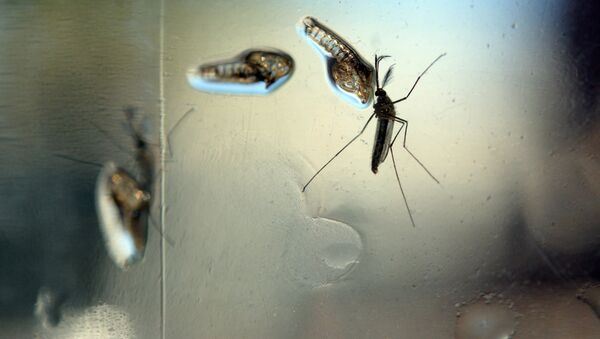WASHINGTON (Sputnik) — An infection with the Zika virus can potentially affect some brain cells in adults, the La Jolla Institute for Allergy and Immunology and Rockefeller University announced on Thursday.
"New research in mice from scientists at The Rockefeller University and La Jolla Institute for Allergy and Immunology suggests that certain adult brain cells may be vulnerable to infection as well," the La Jolla Institute announced in a news release.
Among these are populations of cells that serve to replace lost or damaged neurons throughout adulthood, and are also thought to be critical to learning and memory, the release noted.
"This is the first study looking at the effect of Zika infection on the adult brain," Rockefeller University Laboratory of Pediatric Brain Disease chief Joseph Gleeson stated. "Based on our findings, getting infected with Zika as an adult may not be as innocuous as people think."
"Zika can clearly enter the brain of adults and can wreak havoc… yet the majority of adults who are infected with Zika rarely show detectable symptoms. Its effect on the adult brain may be more subtle, and now we know what to look for," La Jolla Institute Professor Sujan Shresta said.
The current Zika outbreak started in Brazil in the spring of 2015 and has become widespread in Central and South America. The virus is transmitted by daytime-active mosquitos and can cause severe brain defects and microcephaly in newborns.



